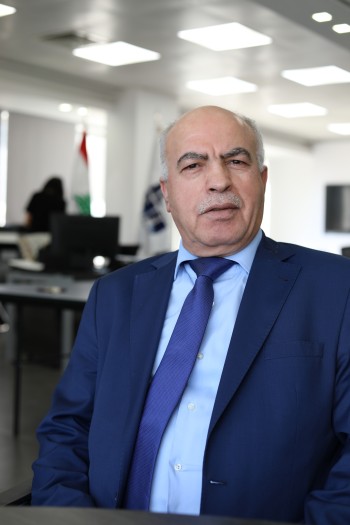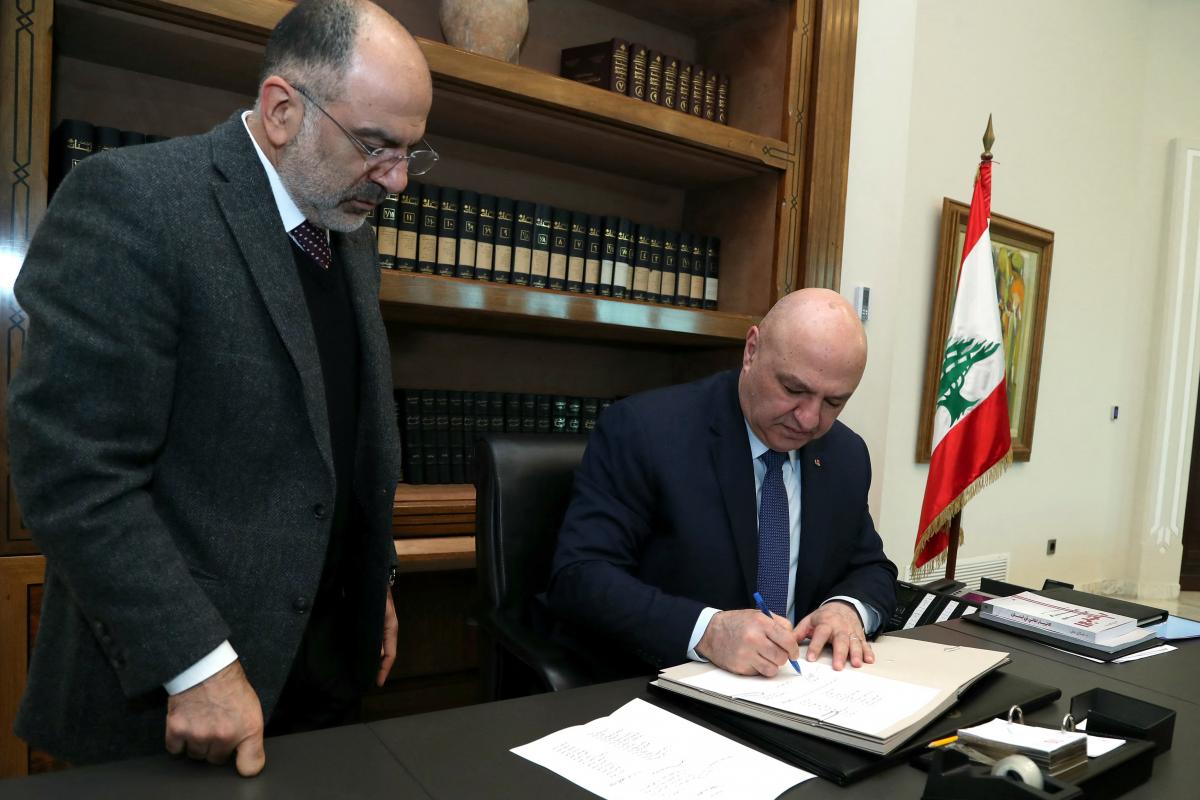Prime Minister Nawaf Salam has labeled his cabinet as a "government of reform and recovery," while acknowledging that "it is difficult to form a government that satisfies everyone at once." Nevertheless, he pledged that this team would be "a cohesive group, committed to the principle of ministerial solidarity." Salam emphasized that the diversity among the members would guarantee the government's functionality, stating, "The government will not be an arena for petty quarrels and conflicts, but a space for constructive and collaborative work."
Despite U.S. envoy Morgan Ortagus's remarks about the "defeat" of Hezbollah and her call for its exclusion from the cabinet, the government that emerged reflects a well-crafted balance. This outcome is the result of intense and difficult negotiations between stakeholders, marked by a determination to avoid the typical deadlock that often delays the process of forming government in Lebanon for months or even over a year, due to the absence of any constitutional provision imposing a deadline for completing the task. This time, the government was formed in record time—less than a month after Salam's designation.
A Delicate Balance of Political Forces
In terms of political representation, the Free Patriotic Movement and the Marada Movement, both Christian political parties, were excluded, as were the Sunni parliamentary blocs. In contrast, the Lebanese Forces Party secured key portfolios, while the Shiite duo (Hezbollah and Amal) and the Kataeb Party also gained representation. Salam appointed four Sunni ministers along with others from various sects, including two former ministers, Ghassan Salamé and Tarek Mitri.
Former Progressive Socialist Party leader Walid Jumblatt secured full Druze representation, with two key ministries while Armenian Tashnag Party was given one portfolio.
President Joseph Aoun played his role as an arbiter, in line with his pledge during his inaugural speech. Unlike his predecessors, he did not claim a "presidential share" in the cabinet. On the contrary, he offered guidance and facilitated negotiations, especially when discussions threatened to stall. Traditionally, the president has a decisive role in selecting ministers for key posts like Foreign Affairs, Defense, and Interior. When a dispute arose over the Foreign Ministry, Aoun eased tensions by replacing Ambassador Naji Abi Assi with Ambassador Youssef Rajji, which satisfied the Lebanese Forces.
Similarly, Aoun and Salam agreed on other Maronite and cross-sectarian appointments, which expedited the government formation, particularly after resolving the dispute over the fifth Shiite minister between Salam and the Shiite duo.
A Race for Achievements
All parties represented in the government appear determined to prove their effectiveness, with each seeking to score points in theit ministries. This drive aligns with the upcoming parliamentary elections scheduled for spring 2026. Before that, delayed municipal and local elections from the previous year will take place next spring. These elections will serve as a litmus test for political forces, helping them prepare for the legislative race.
The Lebanese Forces, for instance, are expected to maximize efforts in their assigned ministries, particularly the Ministry of Energy, amid Lebanon's acute electricity crisis. The issue of offshore oil and gas extraction is equally critical, along with managing the Ministry of Telecommunications, which Speaker of Parliament Nabih Berri once described as "Lebanon's oil." Other political forces will adopt similar strategies to distinguish themselves.
The Challenges Ahead
This government is expected to remain in place until the 2026 parliamentary elections. It will need to pass a new electoral law for this vote and simultaneously launch a broad reform agenda across various sectors.
One of the primary challenges will be restoring the trust of Arab nations and the international community in Lebanon, attracting investments and aid for reconstruction, and reforming the financial and banking sectors. The reforms demanded by international partners since before the October 17, 2019 uprising will be crucial for achieving the long-awaited economic and financial recovery.
The Government’s Program
Drafting the ministerial statement, which is the government agenda, should pose no significant challenges. It will be based on the key themes of President Aoun’s inaugural address, which received widespread support, particularly regarding his role as an arbiter between institutions.
The sensitive issue of weapons, specifically the state's exclusive right to possess them, could spark tensions. To address this, Aoun has proposed adopting a "national defense strategy." It is likely that the government will refer to the Taif Agreement to reach a consensus on this matter.
In its "C" section, the Taif Agreement allows taking "all necessary measures to liberate all Lebanese territories from Israeli occupation, extend state sovereignty over all its lands, deploy the Lebanese army along the internationally recognized borders, and strengthen the presence of international forces in southern Lebanon to ensure Israeli withdrawal and restore security and stability to the border region."
In any case, Salam has placed at the top of his government's priorities the idea that "reform is the only path to genuine recovery." This involves ensuring security and stability in Lebanon by continuing the implementation of UN Security Council Resolution 1701 and the ceasefire while securing the full Israeli withdrawal from Lebanese territory. He emphasized that reconstruction "is not a promise but a commitment."
Finally, Salam noted that the government, in cooperation with Parliament, must complete the implementation of the Taif Agreement and advance financial and economic reforms, stressing the importance of establishing an independent judiciary.
Drafting the ministerial statement will proceed swiftly, as the initial draft was prepared alongside discussions on government formation. The government is expected to secure a comfortable parliamentary majority, despite the refusal of non-represented parties to grant it their confidence.
Please post your comments on:
[email protected]
 Politics
Politics








